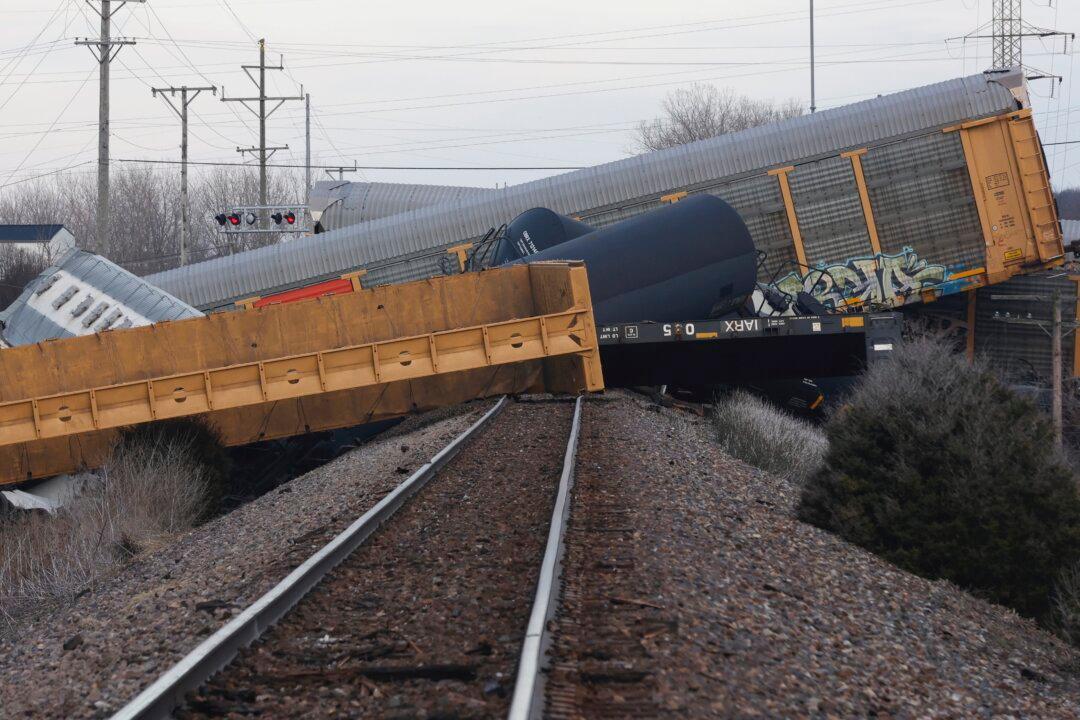A Norfolk Southern train derailed in Springfield, Ohio, on Saturday.
The Clark County Emergency Management Agency asked residents within 1,000 feet of the incident to shelter in place “out of an abundance of caution,” it said in a post on Facebook. The shelter-in-place order was lifted later, according to an updated Facebook post at 2:15 a.m. Sunday.




